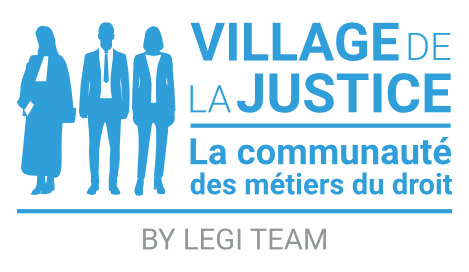Under French law, Police summons (« convocation de police ») refers to the process by which individuals are called upon by law enforcement authorities, usually the police or the « gendarmerie », to participate in various proceedings, including investigations, as witnesses or suspects.
1. Police summons : free hearing (« audition libre ») or police custody (« garde à vue ») ?
Police summons are regulated by the Code of Criminal Procedure.
A police summons is a formal notice issued by law enforcement authorities to individuals, inviting them to appear for various purposes, such as :
![]() Witness statements : Individuals may be summoned to provide statements or testimonies regarding an ongoing investigation.
Witness statements : Individuals may be summoned to provide statements or testimonies regarding an ongoing investigation.
![]() Suspect interrogation : Suspects in criminal cases might be summoned for questioning in connection with alleged criminal offenses.
Suspect interrogation : Suspects in criminal cases might be summoned for questioning in connection with alleged criminal offenses.
The suspect may be interviewed in the form of a free hearing (called « audition libre »), or under police custody (called « garde à vue »).
The police summons may specify the form chosen, but not necessarily. As a matter of fact, the police may issue a convocation for a free hearing / audition libre, and then put the suspect under police custody / garde à vue at the beginning of the hearing ….
2. What are the form and contents of police summons ?
The form of police summons may vary. Indeed, it is possible to be summoned by letter (sent through regular postmail or delivered in person), or by a mere phone call.
The location, date, and time are indicated in the police summons.
However, it does not necessarily contain the reason of the police summons, namely the crime or offense for which the authorities wish to summon the person.
Nevertheless, in cases where the person has appointed a lawyer, the latter may attempt to contact the police or gendarmerie to learn about the criminal offense as well as the date of is occurrence, although the police is not obliged (at this early stage) to answer those questions.
Finally, when the suspect will appear at the police station (« commissariat ») for the hearing, then the police officer will be obliged to notify the criminal charges and the date of the criminal offense.
3. What is the timeframe of police summons ?
Depending on various facts, such as the urgency of the case, the seriousness of the criminal offenses, the number of plaintiffs, … the convocation by police may be notified a few days in advance or several weeks before the hearing.
However, the attorney appointed by the suspect may try to obtain a postponement of the police summons.
4. Is it possible to refuse a summons from the police or gendarmerie ?
Under convocation by the police, the summoned person is obliged to appear.
According to article 78 of the CPP, the judicial police officer may, with the prior authorization of the public prosecutor, compel the appearance of persons who have failed to respond to a summons to appear, or who it is feared may fail to respond to such a summons.
The public prosecutor may also authorize the use of force and coercion without prior summons in cases where there is a risk of tampering with evidence or material clues, of putting pressure on witnesses or victims or on their families, or a risk of collusion between co-perpetrators or accomplices.
5. What about the right to be assisted by a criminal defense lawyer ?
Individuals who receive a police summons as a suspect have the right to be assisted by a lawyer / attorney during their hearings.
Before the hearing, the appointed lawyer can prepare the summoned person and gather evidence for his defense.
The lawyer will also attend the hearing to ensure that the individuals rights are upheld and that they are not compelled to provide self-incriminating statements.
At the end of the hearing, the lawyer will be able to add written observations to the statements made by the suspected person, and to communicate pieces of evidence to the police officers.
6. What happens at the end of police hearings ?
It is up to the Public Prosecutor to decide on the follow-up to the police summons in the light of the information provided by the police.
There are several possible options :
![]() The Public Prosecutor may decide to dismiss the case and issue a « classement sans suites », in which case the person suspected of the offense may initiate proceedings for slanderous denunciation (« dénonciation calomnieuse »).
The Public Prosecutor may decide to dismiss the case and issue a « classement sans suites », in which case the person suspected of the offense may initiate proceedings for slanderous denunciation (« dénonciation calomnieuse »).
![]() The Public Prosecutor may summon the person to appear in court for trial if he has sufficient evidence about a criminal offense committed by the suspect.
The Public Prosecutor may summon the person to appear in court for trial if he has sufficient evidence about a criminal offense committed by the suspect.
![]() Finally, in criminal cases, the Public Prosecutor may refer the person to the investigating magistrate for indictment.
Finally, in criminal cases, the Public Prosecutor may refer the person to the investigating magistrate for indictment.



































